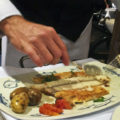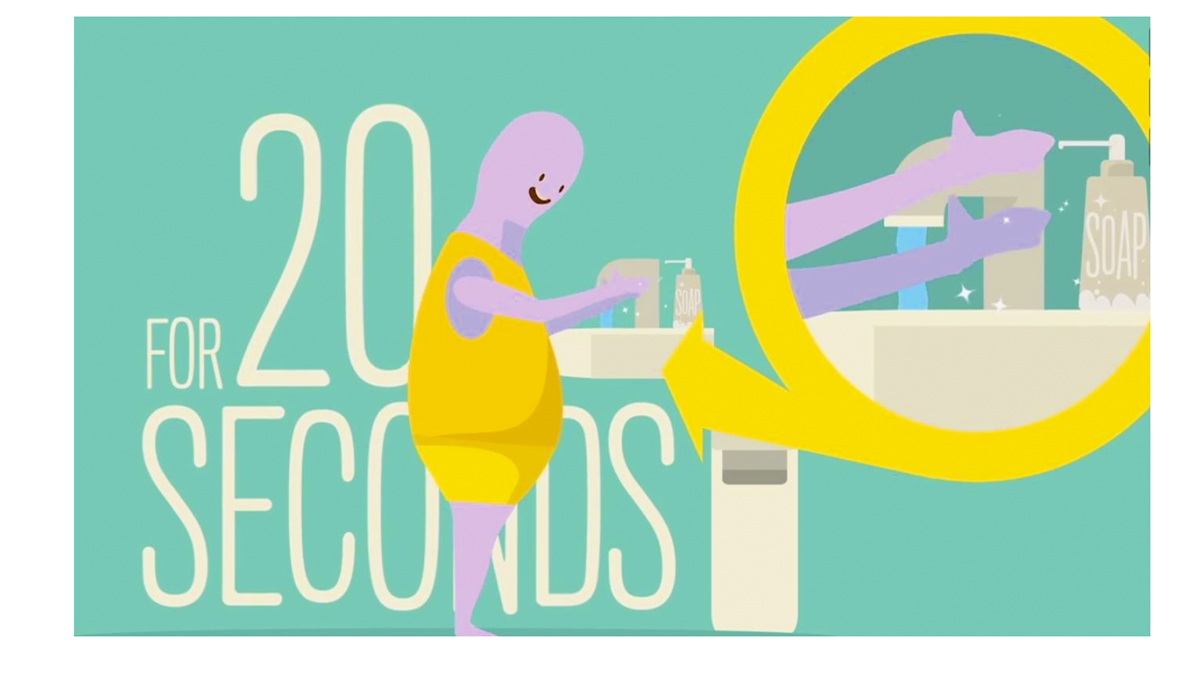
Mysterious, and seemingly flying around the world, a potentially deadly virus outbreak is in the news yet again. This time it’s called covid-19 and it’s landed in North America.
But threats of outbreaks are coming at us all the time. If it isn’t the flu of the year, colds are all too common. And don’t forget the gastric norovirus that can spoil a cruise or resort vacation.
Outbreaks don’t just happen on ships, or hospitals, where they get publicity because the population is clustered together for a week and easy to track. Gastric distress or flu are just as commonly spread among guests at casinos, hotels and on air flights. It’s just that the symptoms appear after the patients have gone somewhere else and the source isn’t simple to trace.
A prevention strategy is essential anywhere–and any time–you travel. Here are the keys:
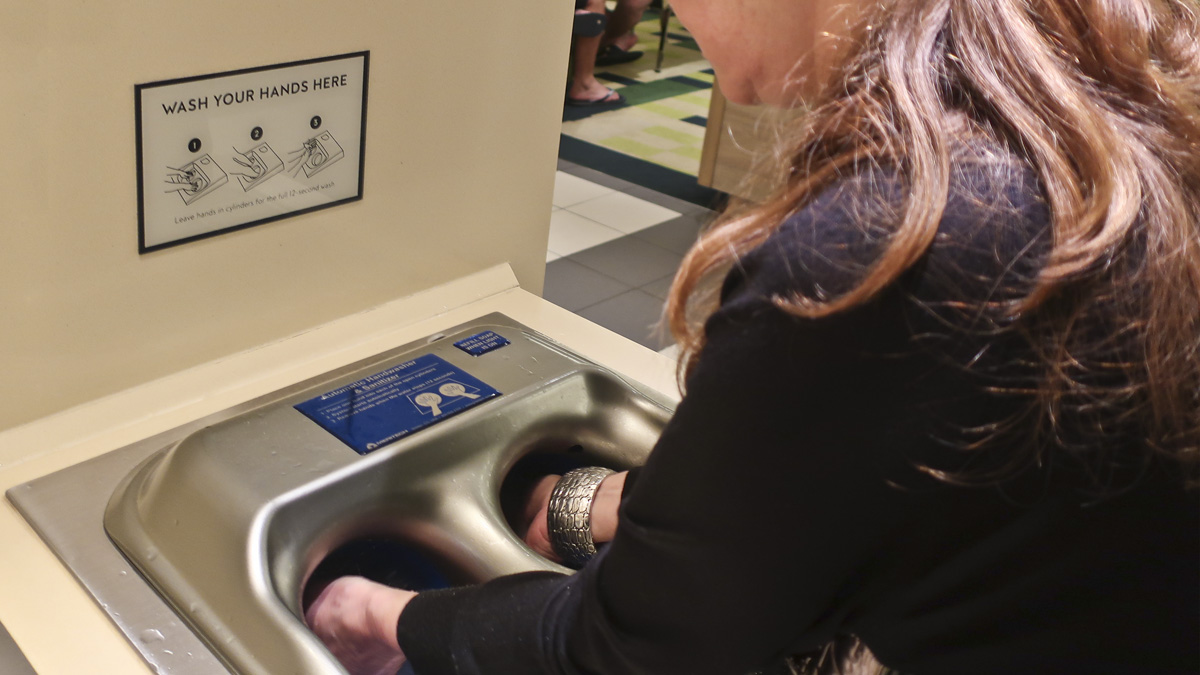
1) Wash your hands–often
A gag that invariably gets one of the biggest laughs of a comedy routine on Royal Caribbean Cruise Line is a joke about the bouncy “Always Wash Your Hands” cartoon that’s played at every lifeboat drill. Who are they to tell grown-ups to scrub up before grabbing a bite?
But the surest single defensive thing you can do to avoid catching any kind of cold or flu anywhere is to regularly wash those hands. The rules, as issued by health authorities, are the same: Wash with soap and water, and scrub for at least 20 seconds.
Most modern cruise ships have installed sinks at the entrances to restaurants and Holland America Line has auto-wash machines that swirl sudsy water around your hands without you having to touch anything.
You’d be amazed how many times you do rub your eye, scratch your nose or pop something into your mouth in the course of a day. Keep ’em clean.
2) Sanitizers are there for a reason–use them
In the absence of a full scrub, dispensers of alcohol-based hand sanitizer have become almost as common in public places as ash trays used to be. On ships you’re encouraged to freshen up everywhere from the gangway to the gala deck party.
Royal Caribbean stations staff outside restaurants on the first couple of days of a cruise holding bottles of the stuff to make sure everyone gets the point.
3) Wipe down public hot spots
Don’t imagine for a minute that airlines have time to sanitize arm rests and tray tables between flights. Handy individual packets of disinfecting cleaning wipes are inexpensive and don’t take up much room in a pack or purse. Remember to wipe the bottom sides of chairs and trays when you settle in. Everyone touches the bottom of arm rests, but they might be overlooked by cleaners.

4) Use caution with shared equipment
The U.S. Centers for Disease Control (CDC) warns that you can pick up virus by simply touching a chair or doorknob with a virus on it. Handles on bathrooms are obvious things that are best touched with a tissue or sleeve than with bare skin. But you may not think about keyboards, info touch screens, library e-readers, ATMs or elevator buttons. Those handy wipes can come in handy here too.
5) Put ‘er there—not!
It’s such an automatic courtesy to shake hands when you meet someone that it’s difficult to stop yourself from reaching out. During flu season or when there’s an unknown epidemic possibly lurking it’s a particularly good idea to break the tradition.
It’s becoming a rule on some lines that at the welcoming reception the captain and crew forego the traditional handshakes. The alternatives include bumping elbows or just a good old-fashioned smile.
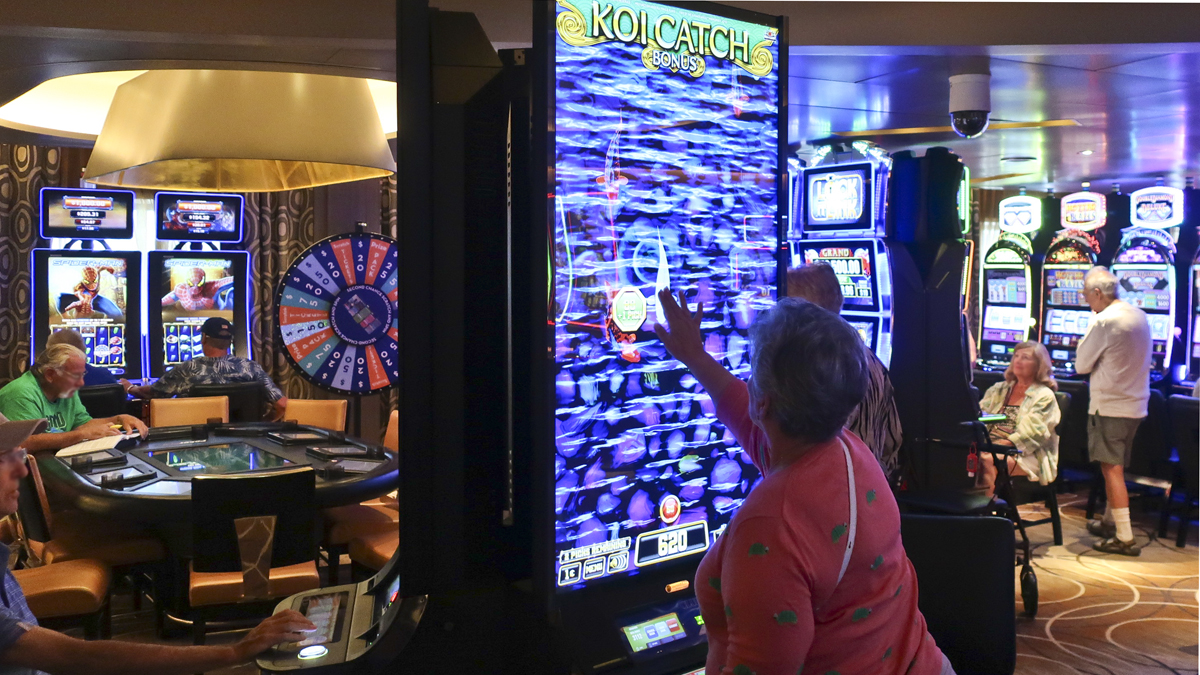
6) Wear gloves in the casino
Seriously. It’s not just the levers and buttons on slots that get pawed continually; an increasing number of electronic games are going to touch screens–and who knows what their previous users may have touched before that.
7) Avoid self-service if possible
Self-service buffet lines are becoming a thing of the past, even on large-scale ships. It also serves as a form of portion control to have staff behind the counter serving up the goodies. For the sake of everyone, pick up everything at a self-serve layout with tongs and please don’t touch anything you’re not going to eat.
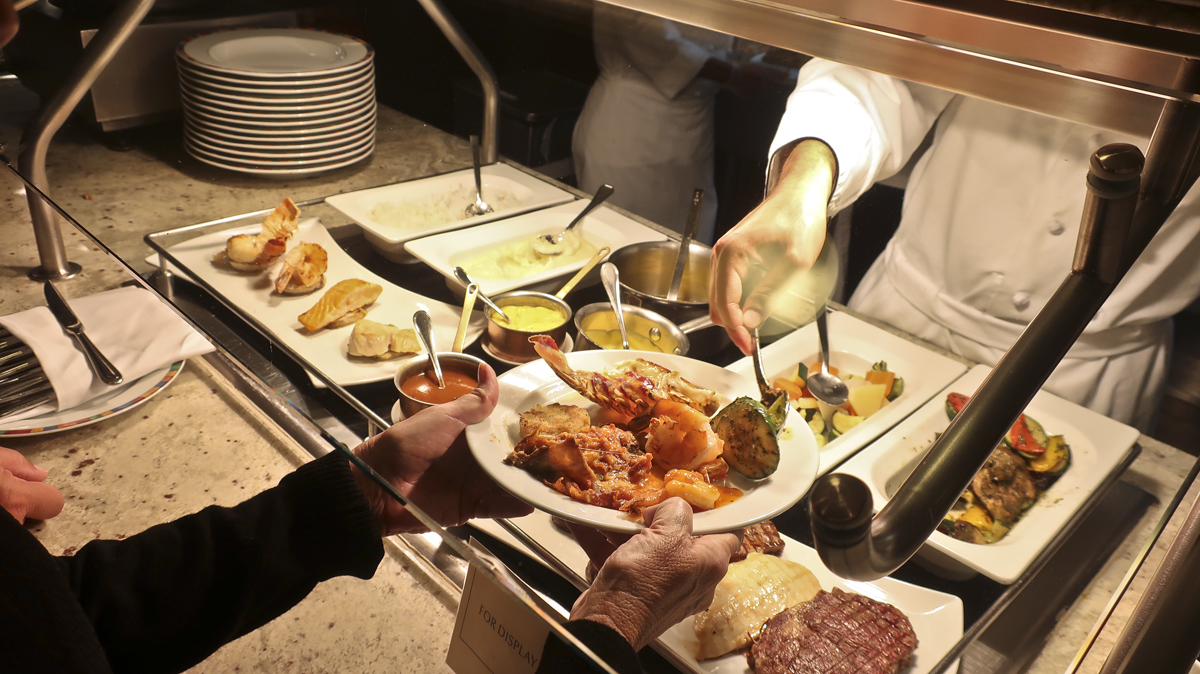
8) Double up the tissue
Cruise ships and airlines do share some of the blame for potentially putting germs on your fingers. The vacuum toilets they use are very delicate and heavy tissue will potentially cause clogs. The flimsy one-ply toilet paper they provide in bathrooms is–how can we delicately put this?–easy to rip in use. Put an extra layer between you and your delicate parts. And, of course, give your fingers a thorough soap and water scrub afterward.
9) Does wearing a mask help?
Wearing a surgical mask when you have a cold or flu to prevent spreading virus is common practice in Japan, but surprisingly there is very little limited research on whether the practice actually cuts disease spread there. Similarly, studies of flu prevention from wearing masks have concluded there seems to be little benefit because people tend to fidget with them and regularly touch their hands to their face.
Bottom line is wearing a mask might help if you’re a doctor or have to face a crowd of potentially sick people, but it’s a scary look. Keeping your hands clean before you touch your face could be just as effective.
10) Stay out of harm’s way
During the thankfully short-lived Sudden Acute Respiratory Syndrome outbreak in 2002, which had a mysterious Asian origin similar to the current coronavirus, it reached the point where wary cruise lines were “uninviting” guests from Toronto, where an outbreak occurred. Hopefully, a future virus threat never gets to that point.
It goes without saying that you should try to avoid contact with people who display symptoms similar to those of pneumonia or the common cold, like coughing or runny noses. And in the case of this Wuhan virus, there’s an added piece of advice from the CDC—avoid animals and animal markets.
Change your plans if you feel it’s necessary, and in the case of cities around Wuhan, travel bans are in place. Airlines and cruise lines as well as governments might make it easier to defer a planned trip if a viral threat in a particular region escalates.
Short of staying home and locking the door until they declare all clear, we will always have to take precautions and carry on. We’ve made it through virus outbreaks in the past and we’ll make it through this one as well.

